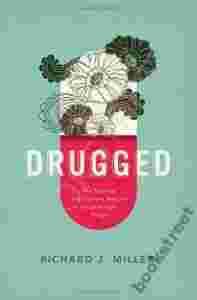|
''Morphine,'' writes Richard J. Miller, ''is the most
significant chemical substance mankind has ever
encountered.'' So ancient that remains of poppies have
been found in Neolithic tombs, it is the most effective
drug ever discovered for treating pain. ''Whatever
advances are made in medicine,'' Miller adds, ''nothing
could really be more important than that.'' And yet,
when it comes to mind-altering substances, morphine is
only a cc or two in a vast river that flows through
human civilization, ranging LSD to a morning cup of tea.
In DRUGGED, Miller takes readers on an eye-opening tour
of psychotropic drugs, describing the various kinds, how
they were discovered and developed, and how they have
played multiple roles in virtually every culture. The
vast scope of chemicals that cross the blood-brain
barrier boggle the very brain they reach: cannabis and
cocaine, antipsychotics and antidepressants, alcohol,
amphetamines, and Ecstasy-and much more. Literate and
wide-ranging, Miller weaves together science and
history, telling the story of the undercover theft of
20,000 tea plants from China by a British spy, for
example, the European discovery of coffee and chocolate,
and how Johann Wolfgang von Goethe, the famous man of
letters, first isolated the alkaloid we now know as
caffeine. Miller explains what scientists know-and
don't-about the impact of each drug on the brain, down
to the details of neurotransmitters and their receptors.
He clarifies the differences between morphine and
heroin, mescaline and LSD, and other similar substances.
Drugged brims with surprises, revealing the fact that
antidepressant drugs evolved from the rocket fuel that
shot V2 rockets into London during World War II,
highlighting the role of hallucinogens in the history of
religion, and asking whether Prozac can help depressed
cats. Entertaining and authoritative, Drugged is a truly
fascinating book. |
|

